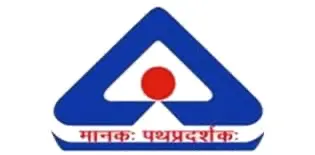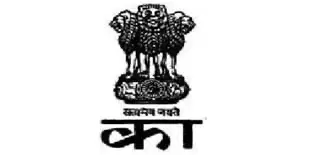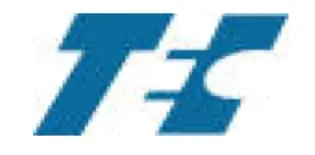In the rapidly evolving world of wireless communication, securing the Wireless Planning & Coordination (WPC) certification is a pivotal step for manufacturers, distributors, and importers aiming to launch their products in India. Governed by the Ministry of Communications and Information Technology, WPC certificate ensures that wireless and radio devices adhere to the specific frequency and operational standards set by Indian authorities.
What is WPC Certification?
WPC certification, also known as the WPC Equipment Type Approval (ETA) certificate, is a mandatory requirement for all wireless and radio devices entering the Indian market. It verifies that products comply with national regulations concerning frequency allocation, radio frequency (RF) output, and electromagnetic interference (EMI). By obtaining this certification, businesses can demonstrate their commitment to quality and regulatory compliance, thus fostering consumer trust and gaining a competitive edge in the Indian telecommunications sector.
What Products Require WPC Certificate for India?
Any device with built-in Wi-Fi, Bluetooth, radio, or other wireless functionalities needs WPC certification for import, manufacturing, or marketing in India. This includes a wide range of products like:
- Mobile phones and tablets
- Laptops and computers
- Wireless routers and access points
- Bluetooth speakers and headphones
- Smartwatches and fitness trackers
- Industrial control systems with wireless communication
Types of WPC Approvals
The WPC offers various approvals catering to different needs:
- Equipment Type Approval (ETA): This is the most common type, mandatory for most wireless devices.
- Import License: Required for importing radio equipment.
- Dealer/Non-Dealer Possession License (DPL/NDPL): Needed for possessing or dealing in wireless equipment.
- Network License: Essential for service providers like ISPs.
- Experimental License: Used for testing and development purposes.
WPC Certification Process: A Step-by-Step Overview
The path to obtaining WPC type approval involves a detailed process:
- Product Testing: Your device undergoes rigorous testing to ensure it meets WPC requirements.
- Documentation: Assemble a dossier of necessary documents, including test reports and technical specifications.
- Application Submission: File your application alongside the documentation to the WPC for evaluation.
- Acquiring the Certification: Successful applications culminate in the issuance of the WPC certificate or the ETA certificate, granting your product official entry into the Indian market.
Why is WPC Certification Mandatory?
The Indian government mandates WPC certification to:
- Regulate radio frequency spectrum usage: WPC ensures that wireless devices operate within designated frequency bands to prevent interference with other communication systems.
- Protect consumer safety: Certification verifies that devices meet safety standards for radiation emission.
- Prevent counterfeit products: WPC helps curb the influx of non-compliant and potentially harmful devices into the Indian market.
WPC Certification Cost
The cost of WPC certification varies depending on the device type, complexity of testing. It typically ranges from a few thousand rupees to tens of thousands for complex devices.
Why Choose 360Compliance for WPC Certificate?
360Compliance offers end-to-end support for obtaining WPC approval, simplifying the pathway to market entry in India. Our team of experts is well-versed in the nuances of Indian regulatory standards, providing tailored guidance throughout the certification process. Here’s why 360Compliance is your ideal partner:
- Expertise: Our deep understanding of WPC requirements ensures your devices are accurately assessed and prepared for certification.
- Efficiency: We streamline the testing and documentation process, reducing time-to-market and alleviating administrative burdens.
- Global Reach: 360Compliance offers assistance with global regulatory compliance, preparing your products for international success.
- Custom Solutions: Recognizing that each product is unique, we deliver customized strategies to meet your specific certification needs.
Partnering with 360Compliance allows you to focus on your core business activities while we ensure your compliance with WPC regulations. Contact us today to discuss your specific needs!
-
Regulatory AuthorityBureau of Indian Standards
-
Mandatory/VoluntaryMandatory
-
Report AcceptanceIndian standards only
-
In-country Testing RequiredNo
-
Local Representative RequiredYes
-
Label Mark RequirementYes
-
Certification Validity Period1 year
-
Authority Logo

-
Regulatory AuthorityWireless Planning & Coordination (WPC)
-
Mandatory/VoluntaryMandatory
-
Report AcceptanceFCC, CE
-
In-country Testing RequiredNo
-
Local Representative RequiredYes
-
Label Mark RequirementNo
-
Certification Validity PeriodVaries
-
Authority Logo

-
Regulatory AuthorityTelecommunications Engineering Centre (TEC)
-
Mandatory/VoluntaryMandatory
-
Report AcceptanceWith India standards only
-
In-country Testing RequiredYes
-
Local Representative RequiredYes
-
Label Mark RequirementYes
-
Certification Validity Period3 years
-
Authority Logo

- Cyprus
- Austria
- Belarus
- Belgium
- Bulgaria
- Croatia
- Czech Republic
- Denmark
- Estonia
- Finland
- France
- Germany
- Greece
- Hungary
- Iceland
- Ireland
- Italy
- Latvia
- Liechtenstein
- Lithuania
- Luxembourg
- Malta
- Netherlands
- Norway
- Poland
- Portugal
- Romania
- Russia
- Slovakia
- Slovenia
- Spain
- Sweden
- Switzerland
- Ukraine
- United Kingdom
- Algeria
- Angola
- Benin
- Botswana
- Burkina Faso
- Burundi
- Cameroon
- Central Africa Republic
- Chad (Republic of Tchad)
- Comoros
- Cote D’lvoire (Ivory Coast)
- Democratic Republic Of The Congo
- Equatorial Guinea
- Ethiopia
- Gabon
- Gambia
- Ghana
- Guinea (Conackry)
- Guinea Bissau
- Kenya
- Lesotho
- Liberia
- Madagascar
- Malawi
- Mali
- Mauritania
- Mauritius
- Mozambique
- Namibia
- Niger
- Nigeria
- Republic Of The Congo
- Rwanda
- Senegal
- Seychelles
- Sierra Leone
- South Africa ICASA Certification
- Swaziland
- Tanzania
- Togo
- Uganda
- Zambia
- Zimbabwe


